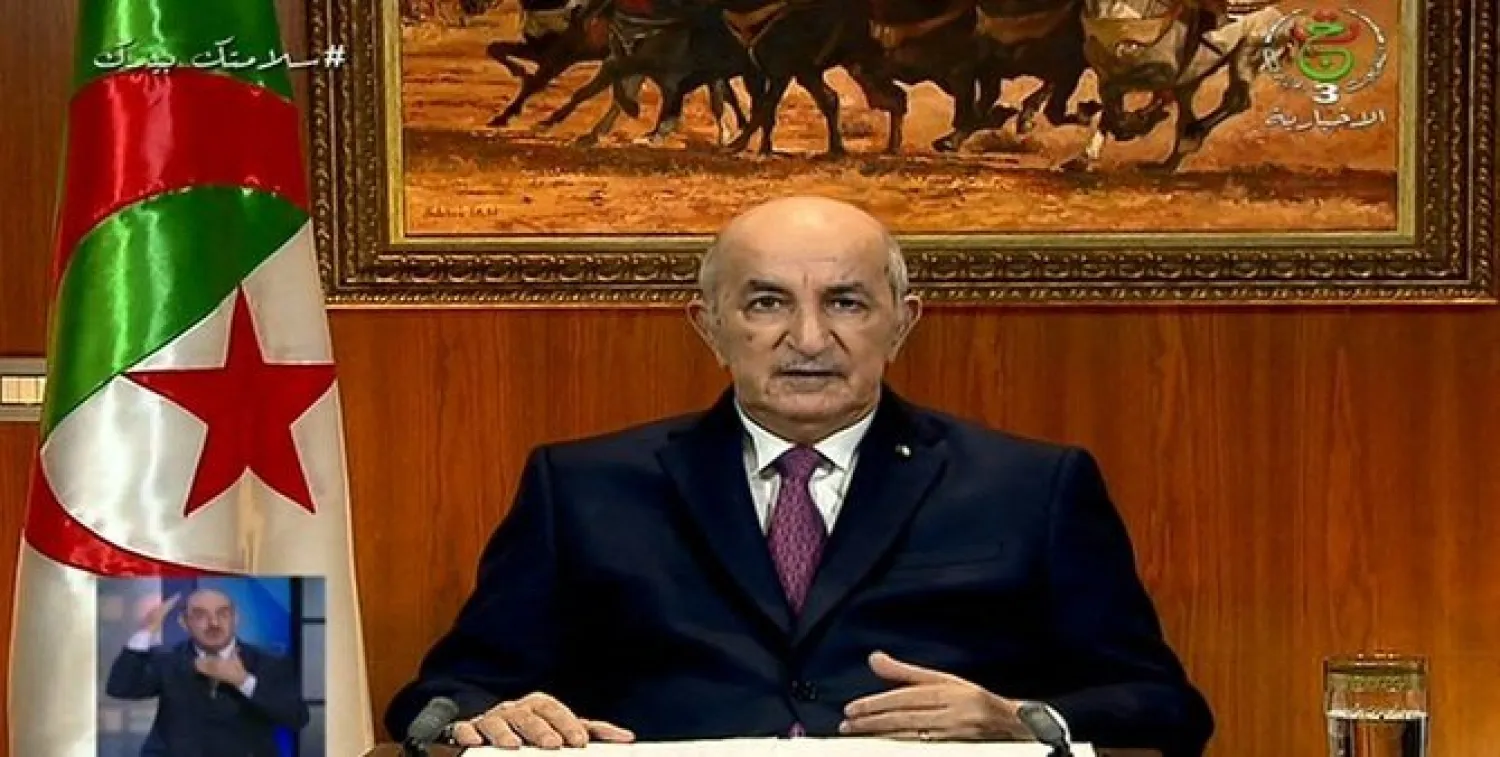Algerian President Abdelmadjid Tebboune on Thursday called for the dissolution of parliament and early legislative elections as the North African nation struggles with health, political and economic crises.
In an address to the nation, Tebboune said he will also carry out a government reshuffle and issued a pardon for dozens of jailed activists of the “Hirak” protest movement.
The government has struggled to stem renewed Hirak protests.
“I have decided to dissolved the National Popular Assembly and call for elections,” Tebboune said, in a speech broadcast on state television, AFP reported.
Tebboune, who has previously expressed dissatisfaction with the cabinet of Prime Minister Abdelaziz Djerad, said the government reshuffle would take place “within 48 hours at most.”
He also announced an amnesty for dozens of jailed members of the Hirak, which swept former strongman Abdelaziz Bouteflika from power in 2019.
“The blessed Hirak has saved Algeria,” he said, announcing a “presidential pardon” to around 55 to 60 people, who he said would return to their homes “tomorrow.”
Around 70 people are currently in prison over their links with the Hirak movement or other peaceful opposition political activity, according to the CNLD prisoners’ support group.
The unprecedented Hirak movement, which demanded a sweeping overhaul of the ruling system in place since Algeria’s independence from France in 1962, only suspended rallies in March last year amid COVID-19 restrictions.
But recent weeks have seen renewed demonstrations in the build-up to the February 22 anniversary of the first nation-wide protests, particularly in the traditionally restive region of Kabylie.
On Tuesday, thousands of Algerian rallied in the northern town of Kherrata, where the first major protest erupted in 2019 against Bouteflika’s bid for a fifth presidential term.
Among them was Karim Tabbou, a prominent Hirak figure who was given a one-year suspended sentence in December for “undermining national security.”
Tabbou told the crowd that “the last bell has tolled for this corrupt system,” as expressed “hope to build a new Algeria: human rights, freedoms and the rule of law.”
Tebboune’s speech to the nation had been highly anticipated, and coincided with a national day paying tribute to the “martyrs” of the 1954-1962 war of independence against French colonial rule.
He was elected on record low turnout in a December 2019 poll boycotted by the Hirak, spent a total of three months in Germany since October, receiving treatment for COVID-19.
But he returned home last Friday after undergoing surgery to his foot, following post-COVID complications.
Over the weekend he held consultations with several political parties, including the opposition, in preparation for local and legislative elections by the end of the year.
On Thursday, Tebboune said he wanted to “open his doors to young people.”









